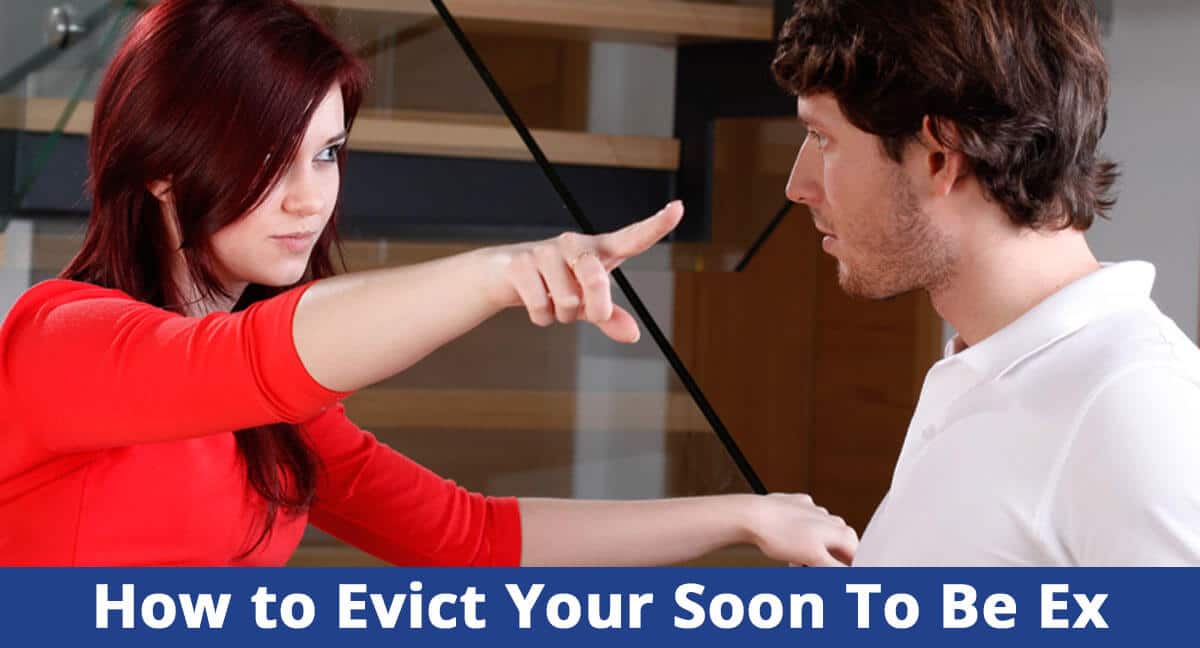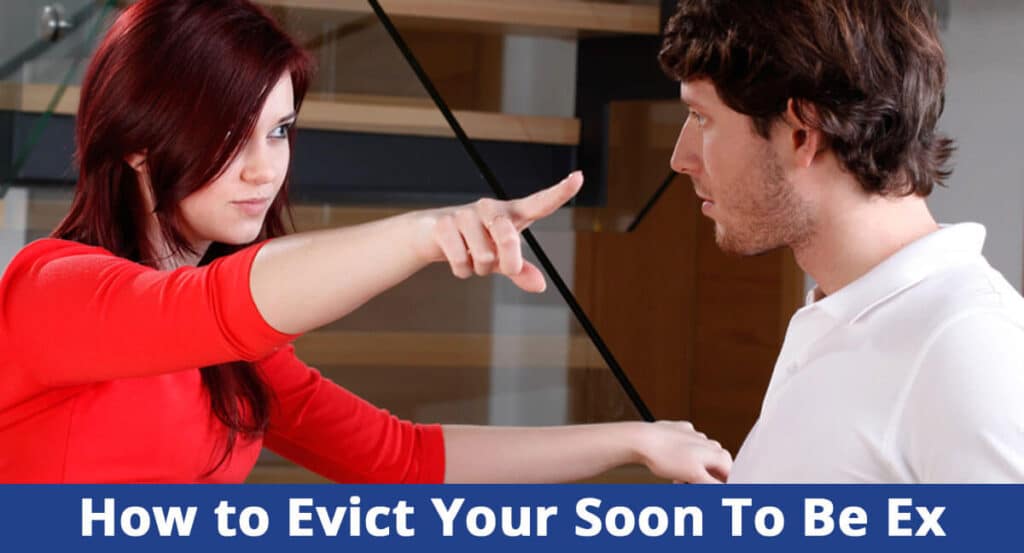How Can I Get My Soon to Be Ex Spouse to Leave the Home?

Living with your soon-to-be-ex-spouse under the same roof after you’ve decided to get a divorce can be extremely uncomfortable. If neither of you wants to leave the home, what are your options? Does New York law allow you to evict your spouse? Here’s what you need to know.
Eviction Defined
Eviction is a legal remedy that allows a landlord to require a tenant to leave property the landlord owns or leases. In most cases, this occurs because a tenant has failed to pay their rent on time, or if they’ve committed a crime on the property. If a landlord wishes to evict a tenant, they must pursue a court order that gives them the right to force the unwilling tenant to leave the residence within a certain amount of time and remove their belongings from the property.
The Truth About Spousal Eviction
Contrary to popular belief, eviction in the context of a divorce isn’t like landlord/tenant eviction. Even if your name is the only one on the mortgage or lease, you cannot evict your spouse or make them leave the marital home simply because you want to or because the home “belongs” to you. This is true for both owned and rented property; one spouse cannot prohibit the other from utilizing the marital residence except in certain specific situations.
Only once the home has been awarded by the court to one spouse or the other through equitable distribution can the “new” owner or lessee legally evict their ex. In some cases, a judge may require the house to be sold and the proceeds from the sale split between both spouses, leaving neither party with the marital home.
When Can You Legally Ask Your Spouse to Leave the Marital Home?
There are some instances where you can legally pursue the eviction of your spouse, such as:
In Cases of Domestic Violence
If your spouse has committed acts of domestic violence against you or children in your home, you have the right to request the spouse’s removal, even if both you and your spouse own the home together. To evict your spouse after an instance of domestic abuse, you typically need to file a temporary protective order. Unfortunately, this does not result in the immediate removal of your spouse. If you believe you or any children in your home are in immediate danger, the police can intervene and assist you in removing the offender and obtaining an emergency protective order until a temporary order can be filed.
In Cases Where the Home Is Your Separate Property
You may also be able to legally remove your spouse from your home if it is your own separate property. This doesn’t necessarily mean that only your name is on the lease or mortgage. Rather, you must have owned or rented the property prior to your marriage or paid for the property with separate funds, such as money from an inheritance or lawsuit.
Can a New York Court Still Consider Separate Property to Be Marital Property?
In some instances, a New York court may still consider separate property to be marital property, such as if the property was paid for by marital funds. For example, if you owned a home prior to your marriage that you were still making payments on, and you began taking those payments out of community funds after the wedding, a court may consider the home to now be marital property. A home purchased during the course of the marriage will also be considered marital property instead of separate, regardless of which spouse earned the money that paid for the home. New York law treats all earnings during the marriage by either spouse as community property and is subject to equitable distribution in the event of a divorce.
Considering a Divorce? Get Legal Help Protecting Your Home from a Long Island Attorney
If you’re considering getting a divorce or you’ve already decided to dissolve your marriage, it’s imperative that you obtain legal support as soon as possible. Your rights to property that you own separately or jointly are on the line, as well as your financial and emotional wellbeing. Navigating a Long Island divorce can be difficult, and an experienced family lawyer can assist you in pursuing resolutions that work for your family. Contact Hornberger Verbitsky, P.C. today at 631-923-1910 for a free consultation.
For more information about Property Division in your divorce, visit our Complete Guide to Dividing Property in Divorce.
GET YOUR FREE CONSULTATION TODAY
Call 631-923-1910 or fill in the form below
Horberger Verbitsky, P.C. partners Robert E. Hornberger, Esq. and Christine M. Verbitsky, Esq.
Get your complimentary consultation and case evaluation with our experienced attorneys today.
Your attorney will describe the many options available and determine together which is the right solution for you. By the end of this conversation, we’ll all understand how we can best help you to move forward.
No Cost or Obligation
There is no cost or obligation for this initial consultation. It is simply an opportunity for us to get to know each other, answer your questions and learn if Hornberger Verbitsky, P.C. is right the right law firm for you. Give us a call at 631-923-1910 or fill in the short form below for your free consultation and case evaluation.
About the Author
Robert E. Hornberger, Esq., Founding Partner, Hornberger Verbitsky, P.C.
- Over 20 years practicing matrimonial law
- Over 1,000 cases successfully resolved
- Founder and Partner of Hornberger Verbitsky, P.C.
- Experienced and compassionate Long Island Divorce Attorney, Family Law Attorney, and Divorce Mediator
- Licensed to practice law in the State of New York
- New York State Bar Association member
- Nassau County Bar Association member
- Suffolk County Bar Association member
- “Super Lawyer” Metro Rising Star
- Nominated Best of Long Island Divorce Attorney four consecutive years
- Alternative Dispute Resolution Committee Contributor
- Collaborative Law Association of New York – Former Director
- Martindale Hubbell Distinguished Designation
- America’s Most Honored Professionals – Top 5%
- Lead Counsel Rated – Divorce Law
- American Institute of Family Law Attorneys 10 Best
- International Academy of Collaborative Professionals
- Graduate of Hofstra University School of Law
- Double Bachelor’s degrees in Philosophy, Politics & Law and History from SUNY Binghamton University
